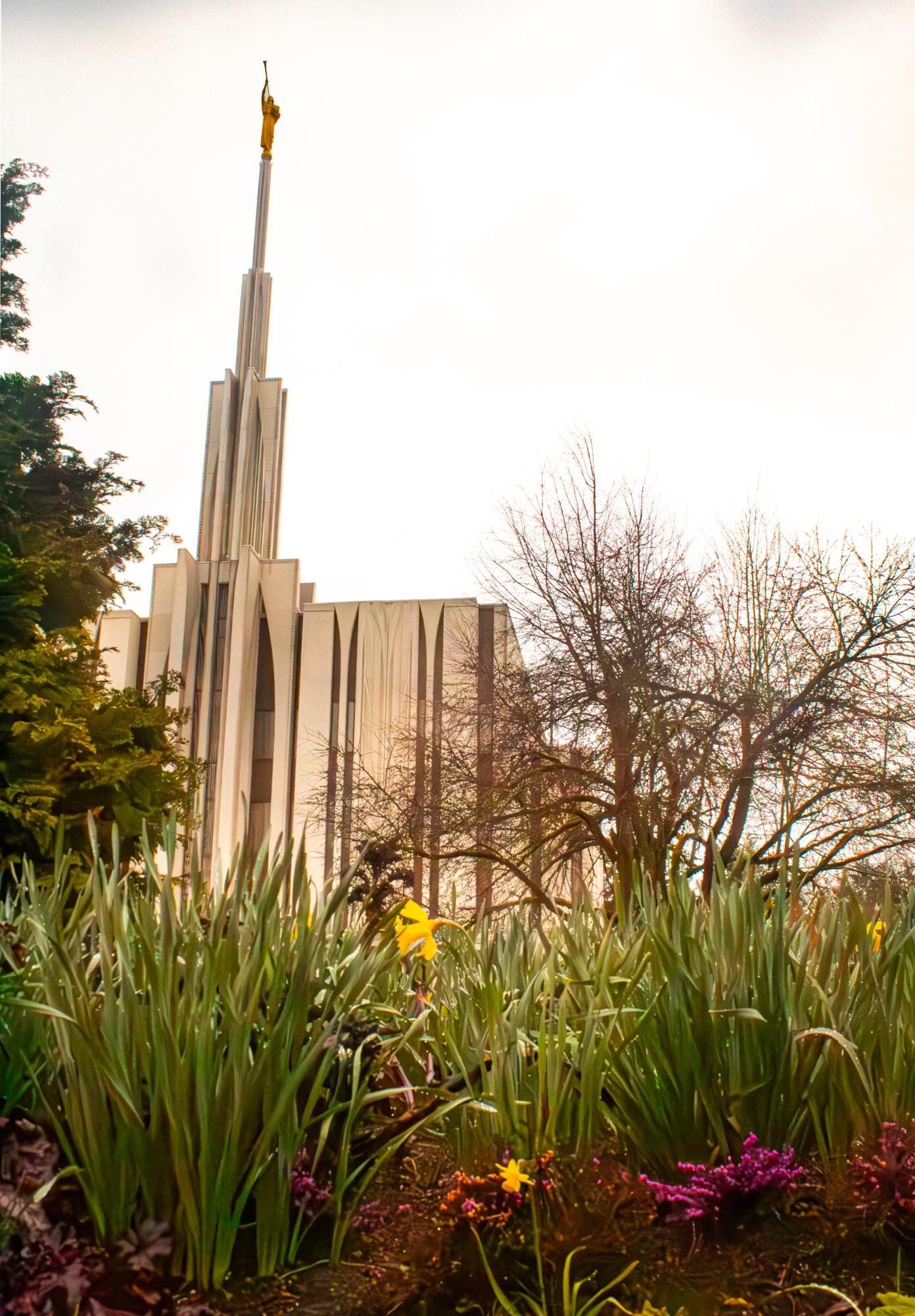This article uses the terms “LDS member” and “Mormon” to refer to members of The Church of Jesus Christ of Latter-day Saints. Although this is a common name to refer to members, many prefer the name “member of The Church of Jesus Christ of Latter-day Saints.”
The Church of Jesus Christ of Latter-Day Saints, whose members are more commonly known as Mormons, is a branch of Christianity that follows God and Jesus Christ through the King James Bible and the Book of Mormon. They study these scriptures alongside the Doctrine, Covenants and a collection of texts titled the Pearl of Great Price. The Book of Mormon is considered a supplementary text that clarifies the Bible’s teachings and resolves what Mormonism views as errors in the King James Bible. Founder of The Church of Latter-Day Saints Joseph Smith translated ancient religious texts into modern-day language. Additionally, other members of the church contributed to writing the church’s doctrine.
According to the official LDS website, one of the main aspects of the religion is that followers believe humans can return to God’s presence and become like God through faith, repentance, and obedience. They believe that Jesus Christ is the modern-day prophet of God and that God continues to speak to humanity today.
In Washington, members of the Church of Jesus Christ of Latter-day Saints — more commonly known as Mormons — make up almost 4% of the population. The state currently ranks sixth in the nation for population of LDS members. Senior Annie Taylor (she/her) has been following The Church of Jesus Christ of Latter-day Saints her entire life. She explained the overall beliefs of the church.
“We believe in our savior, Jesus Christ. We believe in a God who loves us. We believe that all of us have a purpose on this earth and that there’s an eternal perspective after death. There’s going to be a future and there’s going to be infinite chances for you,” Taylor said. “Other Christian faiths believe in a traditional heaven and hell. Our faith doesn’t have any version of hell. There’s eternal progression. You’re going to be in the best place for you with the people that you love.”
The church is a part of Taylor’s everyday routine. She begins the first four days of the school week by attending seminary — a class where members study religious scripture in depth. The class starts at 6:45 a.m.
“I really like it, because it’s a really great way to ground my morning,” Taylor said. “I just wake up and I’m studying the scriptures, like with my friends. It’s fun. We play games, and we have breakfast on Thursdays and things.”
According to the official LDS website, the church is currently seeing a high growth rate nationally, with over 250,000 baptisms occurring in 2023. This includes high school students like senior April Carlene (she/her)*. Carlene converted to the religion in November and said that she decided to convert because of both curiosity and the guidance it provided during a recent difficult time period.
“I mean, when you learn, you can only learn so much without actually getting into it yourself,” Carlene said. “But it also just felt right for me at the time, and, it also just brought me closer in a lot of friendships. I just like the way that it made me feel great.”
Carlene discussed the stigmas she’s already faced, noting that many people have an inaccurate understanding of the religion.
“When you tell someone that (you’re an LDS member), normally, not the most positive things come to mind, because I feel like people only care about the crazy things that they hear,” Carlene said. “But when you put them in context, they’re not that crazy.”
Taylor said that much of the negative discourse towards the LDS church tends to circulate online.
“On a less harsh level, there’s this stereotype of Mormons being super uptight and having all of these rules that they follow,” Taylor said. “There’s also the harsh stereotype of Mormonism being a cult. Personally, that’s hard to hear as a practicing member. I feel with any religion, there are people that are going to have a lot of bad experiences because any belief system is not going to match somebody else’s. And that’s okay. I am totally aware of people having bad experiences and stepping away from something that is not beneficial to you, and it’s totally valid.”
Junior Orson Whittaker (he/him)* is a student who decided to step away from the church because it did not align with his values, although his family continues to be involved.
“I started questioning my faith really late, compared to a lot of people that I know that are ex-religious. I was about 13, so eighth grade,” Whittaker said. “I remember for two years, every night I would go to bed, I would kneel down, and I would pray, and I would ask God to fix me and to make me better and to make me normal. And it never happened. And I think that kind of made me realize that if God did exist, it wouldn’t be cool to do that to a 13-year-old.”
Although his beliefs do not align with the church, Whittaker said that stereotypes are harmful to the community.
“Despite my beliefs and my criticisms of the church, I still think that there’s good that comes out of it,” Whittaker said. “And so I’m not super sure. I do know that there are things I don’t agree with, and I think people who are struggling with that phrase should lean into their faith to protect themselves. And if they believe that it’s a cult, then they should still be kind to people in it because it affects so many people to say that without knowing anything about the church.”
Taylor said that while common stereotypes tend to diminish the community, members still feel that they can rely on each other for support and understanding. Like many religions, LDS has a set of values that members practice to show their devotion to God. Members practice their faith through events like seminary, baptisms, fasting and going to church on Sundays. Individuals have the personal decision to choose how they show their devotion to God and how they partake in religious affairs. Despite the many activities, Taylor said that balancing her religious responsibilities with school and extracurricular activities has not been too difficult.
“I guess the big thing would be Sundays, which are a Sabbath day for us,” Taylor said. “It’s a general practice to kind of reserve that day for both worship but also just being with your family and being at home. So there have been times when events have been on Sundays, and there’s no right answer for what to do. Nobody’s going to be like, ‘This is exactly what you have to do.’ It’s a personal decision between you and God, about how you want to spend your day.”
Similarly, senior Caleb Snyder (he/him) chooses to follow the Word of Wisdom, a set of values that are meant to demonstrate commitment to God and promote self-care. It is described in Section 89 of the Doctrine and Covenants.
“I think a lot of people go into life not really knowing what they want,” Snyder said. “I think for some people, it’s a ‘party all day because tomorrow you’re dead’ kind of thing. But for me, I know that I will have a different life after this, so I’m less concerned about that, but I also know that I want to live this life to its fullest capacity and not necessarily waste away drinking or doing anything negative.”
Taylor said that if others have curiosity regarding the church and their beliefs, they should research more about it.
“I think a lot of judgment comes from misunderstanding. Not even misunderstanding, just no understanding. And there’s a lot of stuff that’s published online that’s not true. If you’re really interested in actually knowing, saying things like, ‘What is this even about?’ or, ‘What are people talking about?’ I would recommend going straight to the source, which is churchofjesuschrist.org.”
*Names changed for anonymity using a random name generator












